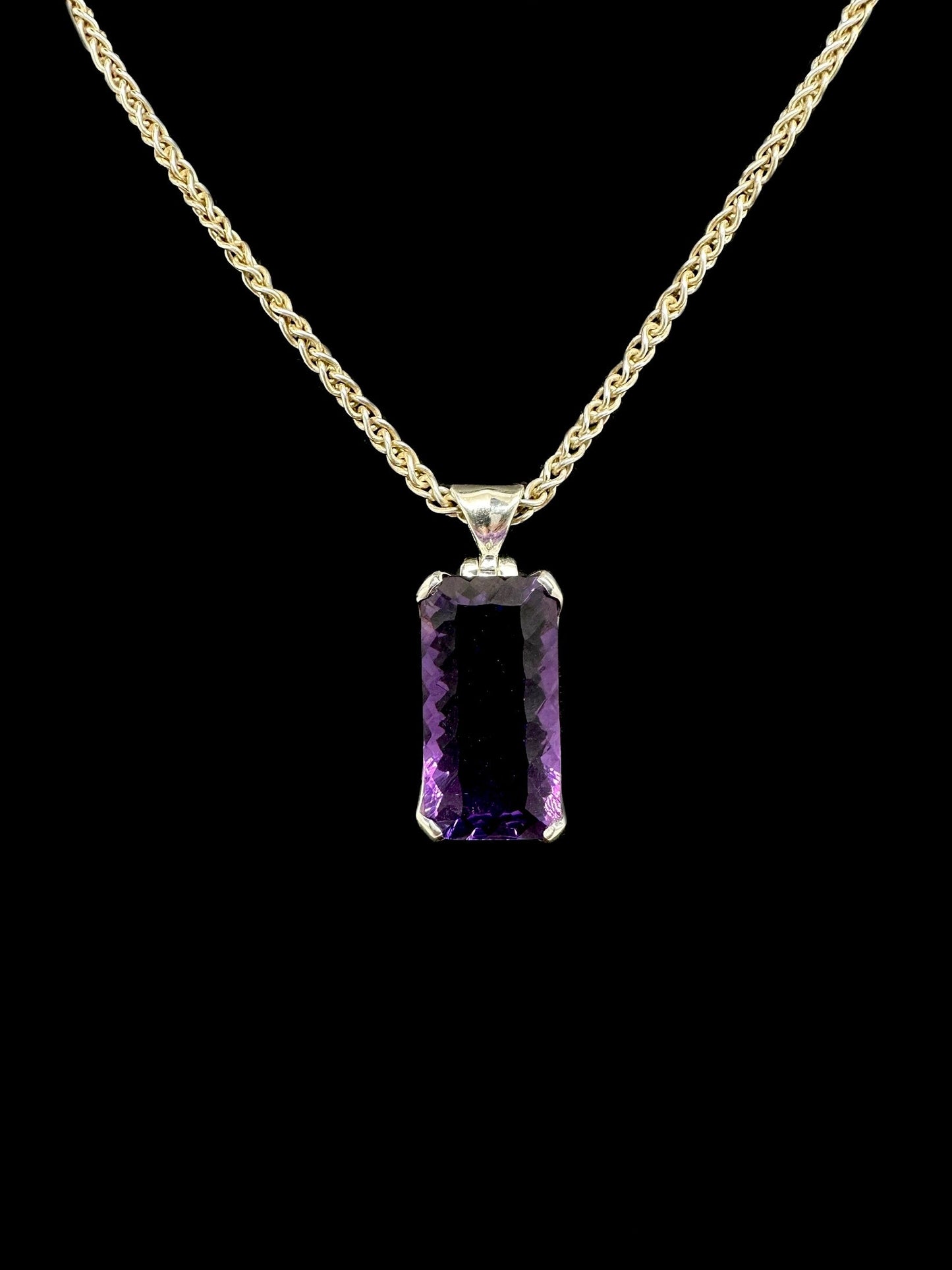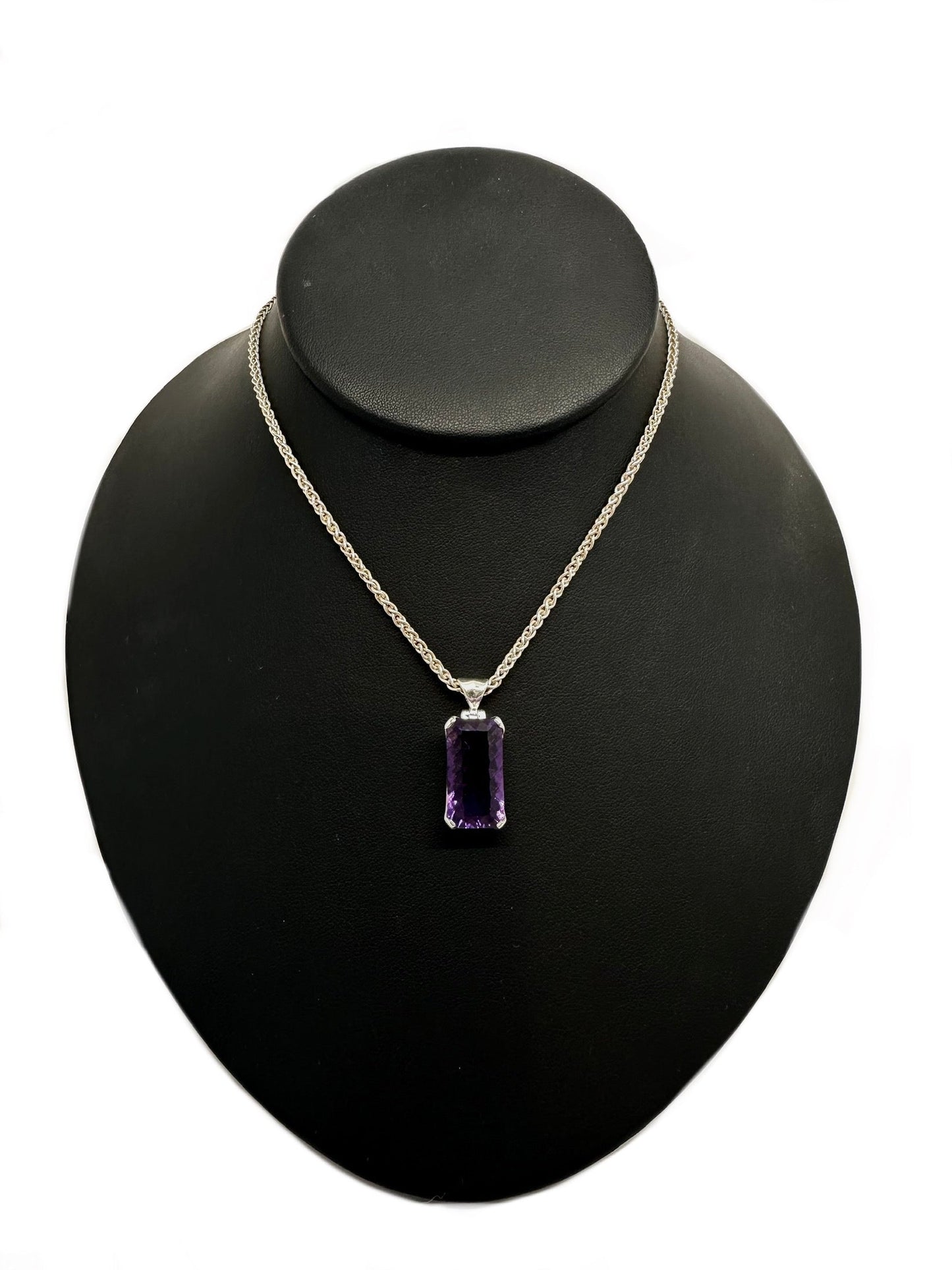Tarazed Gems & Jewellery
Amethyst Rectangle Fantasy Cut Pendant
Amethyst Rectangle Fantasy Cut Pendant
Couldn't load pickup availability
Amethyst Rectangle Fantasy Cut Pendant
Mineral: Quartz var. Amethyst
Origin: Minas Gerais, Brazil
Color: Dark Purple
Treatment: None
Material: Sterling Silver (925)
Approximate Dimensions: 3cm x 1.3cm x 0.8cm
Weight: 6.2g
Note: Chain NOT Included
10% of this purchase will be donated to The Rainforest Foundation (US)
The Greek word "amethystos" may be translated as "not drunken", from Greek a-, "not" + methustos, "intoxicated". Amethyst was considered to be a strong antidote against drunkenness, which is why wine goblets were often carved from it.
"L'Amethyste, ou les Amours de Bacchus et d'Amethyste" (Amethyst or the loves of Bacchus and Amethyste), the French poet Remy Belleau (1528–1577) invented a myth in which Bacchus, the god of intoxication, of wine, and grapes was pursuing a maiden named Amethyste, who refused his affections. Amethyste prayed to the gods to remain chaste, a prayer which the chaste goddess Diana answered, transforming her into a white stone. Humbled by Amethyste's desire to remain chaste, Bacchus poured wine over the stone as an offering, dyeing the crystals purple.
Variations of the story include that Dionysus had been insulted by a mortal and swore to slay the next mortal who crossed his path, creating fierce tigers to carry out his wrath. The mortal turned out to be a beautiful young woman, Amethystos, who was on her way to pay tribute to Artemis. Her life was spared by Artemis, who transformed the maiden into a statue of pure crystalline quartz to protect her from the brutal claws. Dionysus wept tears of wine in remorse for his action at the sight of the beautiful statue. The god's tears then stained the quartz purple.
This myth and its variations are not found in classical sources. However, the goddess Rhea does present Dionysus with an amethyst stone to preserve the wine-drinker's sanity in historical text.
Color may vary in images and videos due to different lightings and angles.
Share




